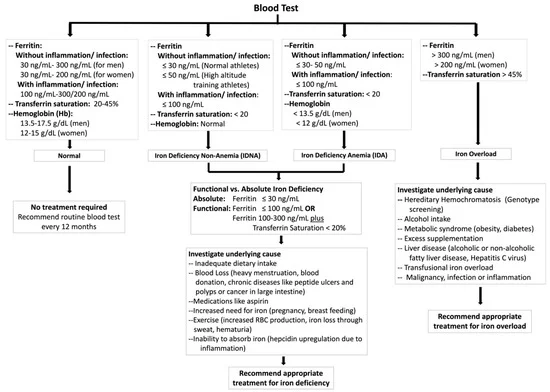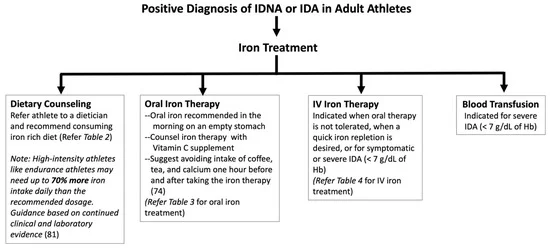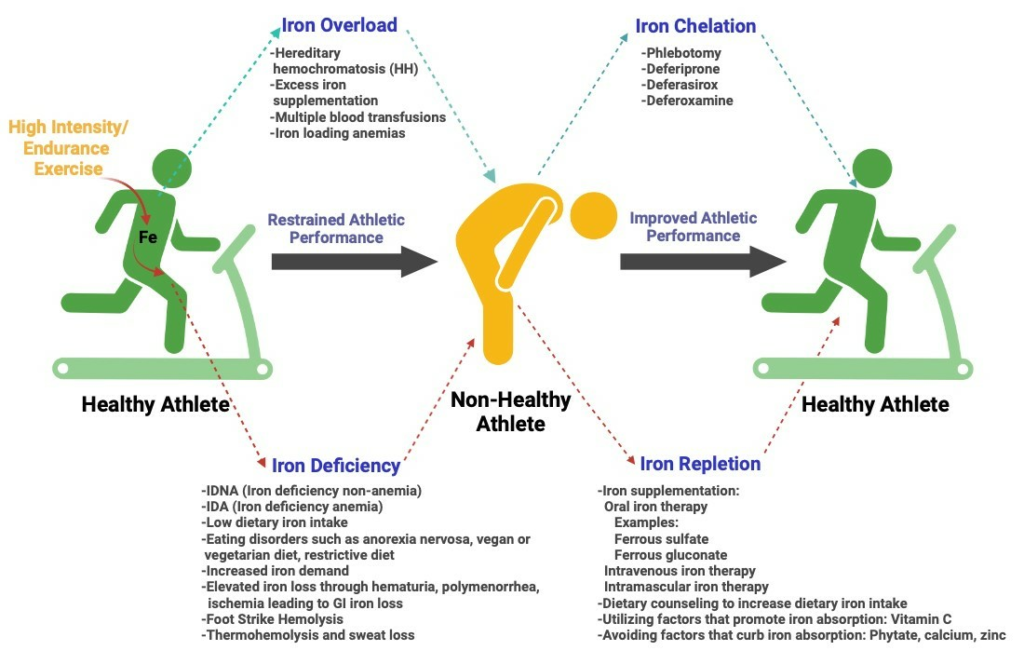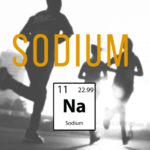The Importance of Iron for Runners
Runners need to pay special attention to their iron levels. It plays a crucial role in the transportation of oxygen by your blood cells and regulates cellular respiration and metabolism.
Suboptimal iron levels can directly impact your running, as it reduces oxygen availability and forces your body to rely on anaerobic energy production. This can cause higher lactate levels, lower blood pH, and depletion of muscle glycogen.
I based this post on this amazing scientific review of the effects of iron deficiency and overload on athletic performance. If you’re a science and physiology geek, I recommend that you read it in full!
Read on to find out how much iron runners need and why!
How Running Depleats Your Iron Stores.
Running can lead to a 70% decrease in iron levels when compared to the general population.
Reasons for decreased iron levels in runners include:
- Poor dietary choices, especially a diet rich in simple-carb, low-nutrient-containing foods such as white bread, white rice, and white pasta;
- Increased iron requirements and iron loss;
- Foot strike hemolysis, also called “runners anemia”. This happens when red blood cells are destroyed as they pass through a runner’s feet pounding the pavement;
- Inflammation caused by increased physical activity which leads to impaired iron absorption;
- Sweat loss. You lose up to up to 22.5 μg of iron per liter of sweat;
- Insufficient blood supply caused by running, which can lead to gastrointestinal iron loss;
- Hematuria (blood in urine) due to running-induced damage of the bladder.
What is Sports Anemia?
Regular running can cause increased plasma volume. This can lead to lower hemoglobin levels due to dilution, resulting in a condition known as pseudo-anemia or sports anemia. Runners have a higher risk of developing this kind of anemia than strength athletes.
How Low Iron Levels Affect Your Running Performance?
Iron deficiency affects approximately 15–35% of female athletes and 5–11% of male athletes. Women are especially affected. A study of 14 female runners showed that 50% of them had low iron levels at baseline, and 70% were iron deficient after completing a training block. This condition can have negative effects on your running performance, including:
- lower maximum oxygen uptake and increased muscle fatigue;
- impaired cellular respiration and metabolism;
- reduced oxygen availability leading to greater reliance on anaerobic metabolism, resulting in elevated lactate concentration, lower blood pH, and depletion of muscle glycogen;
- decreased mitochondria (cell powerhouses) leading to reduced exercise capacity.
How Much Iron Do Runners Need Daily?
You need to maintain optimal iron levels to ensure proper oxygen supply to your working muscles.
The recommended daily intake of iron is 8 mg for men and 18 mg for premenopausal women. However, runners may require up to 70% more iron than less active individuals.
It’s easy to miss iron deficiency without anemia visible in your blood tests. Look out for symptoms such as fatigue, muscle weakness, and lowered cognitive function. If you’re a runner, consider regularly checking your blood ferritin levels.

What to Do if Your Iron Levels Are Suboptimal?
The most important thing to do is to change your diet. Only if this doesn’t bring results, consider talking to your health care provider about iron supplements.
Focus on increasing both iron intake and iron absorption.
To increase iron levels in your blood:
- include heme iron food sources, such as red meat, poultry, and seafood;
- include non-heme iron food sources such as lentils, chickpeas, beans, nuts, seeds, whole grains, and green vegetables;
- Avoid consuming foods that block iron absorption at least one hour before and one hour after a meal. This includes tea, coffee, chocolate, red wine, calcium supplements, and calcium-fortified foods;
- Consume foods that enhance iron absorption, such as fruits, raw vegetables, parsley, other vitamin C-rich foods, vitamin C supplements, and fermented foods.

Iron Overload.
While some athletes believe that high iron levels are beneficial for sports performance, long-term iron overload is detrimental both to your fitness and overall health. It can not only compromise muscle function and recovery but also damage various organs in your body, including the heart, skeletal muscles, and liver.
Iron overload can be caused by genetic mutations, as well as long-term use of iron supplements.

Recap – Iron for Runners
- Iron is very important for your running performance as it allows for oxygen transportation and energy metabolism;
- Low iron levels even without anemia will hurt your running;
- Runners might need up to 70% more iron than regular people so focus on including lots of iron-rich foods in your diet, avoid iron-absorption-blocking foods, and include vitamin-C-rich foods;
- Check your blood ferritin levels regularly;
- If you’re a premenopausal running woman, consider an iron supplement (do tests, talk to your doctor);
- Too high iron levels are detrimental to health and running performance.
Thank you for reading and have a great run!





Very informative!
Thanks Lydia!